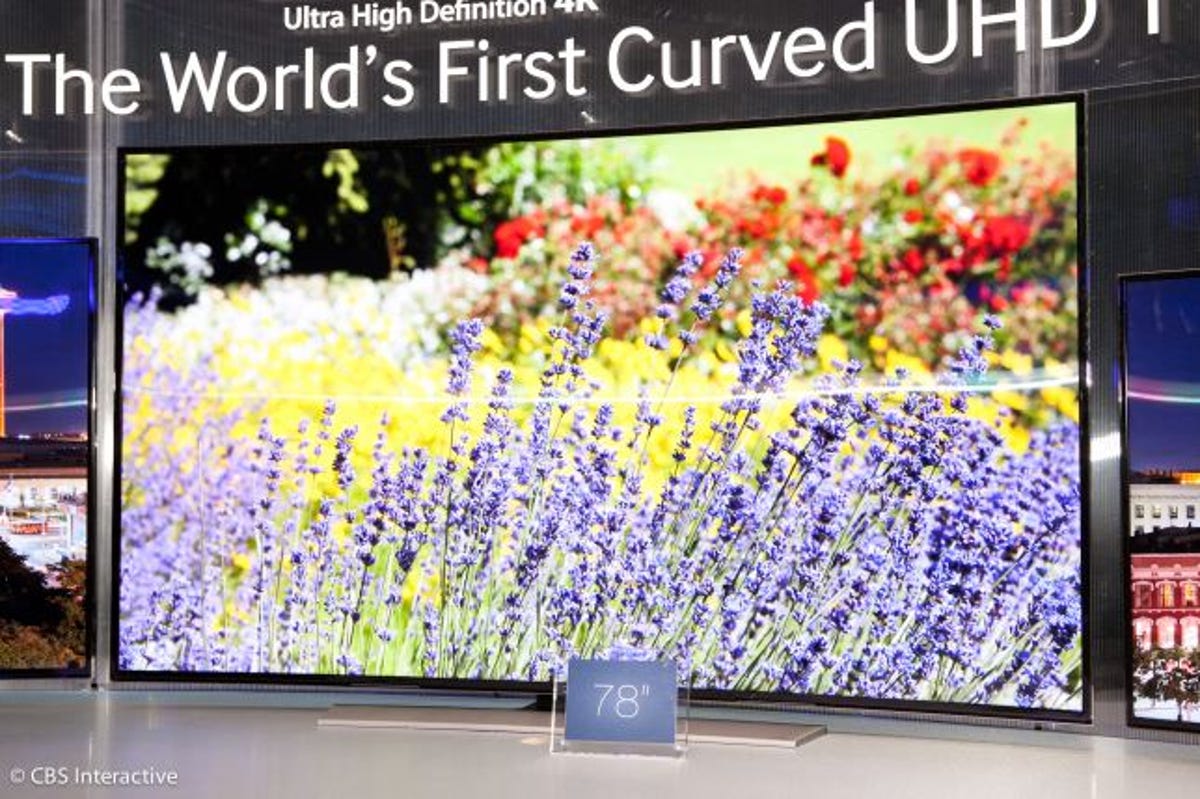
Sarah Tew/CNET
A couple weeks after Volkswagen was laid low by the discovery some of its diesel-powered cars cheated on emissions tests, Samsung is facing an accusation that its televisions appear more energy-efficient under test conditions than in everyday use.
Tests conducted by ComplianTV, a testing group funded by the European Union, spotted the discrepancy, the Guardian reported on Thursday. However, Samsung strongly denied that it’s gaming the system to make its products look better in regulatory lab tests.
At the heart of the matter is a feature in Samsung TVs called motion lighting. It’s designed to reduce screen brightness — and thus energy consumption — when the picture on the screen is in motion. ComplianTV has said that motion lighting is only activated during tests.
“The laboratories observed different TV behaviors during the measurements, and this raised the possibility of the TV’s detecting a test procedure and adapting their power consumption accordingly. Such phenomenon was not proven within the ComplianTV tests, but some tested TVs gave the impression that they detected a test situation,” the report said.
Related stories
- Porsche Chairman Müller named new CEO of Volkswagen
- How CNET tests TVs
- Almost all Android devices cheat at benchmarks, report says
The finding heightens concerns that, as computers spread ever more into every nook of our lives, products may be adapting their behavior to conditions in ways that are nefarious, not just clever and helpful. Most people carefully cultivate their appearance on Facebook and job applications to put themselves in a favorable light, but we’re not used to computers being so crafty.
Samsung said there are no shenanigans going on in the case of its TVs, though.
“Motion lighting is not a setting that only activates during compliance testing,” the South Korean company said in a blog post. “On the contrary, it is a default setting which works both in the lab and at home, delivering energy savings and helping us to reduce our environmental impact.”
But it shouldn’t be a surprise to find observers taking a sceptical stance right now. Volkswagen just lost its chief executive and nearly half its market value after it admitted to using “defeat device” software to clamp down on emissions only when some diesel-engine passenger vehicles were undergoing regulatory tests.
And Samsung itself has used special modes during testing. In 2013, it among several smartphone makers companies found to use software that detected when people were performing speed tests and revved up system performance at that time.
The European Commission has said that it will investigate any allegations of companies attempting to cheat tests, after receiving several expressions of concern about the matter from member states, the Guardian reported.




